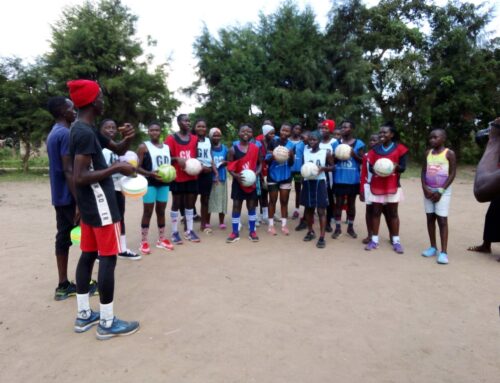Post any competition win or lose, you carry out a detailed review of the performance and the programme, BUT do we really get this right?
Many questions are asked and answered:
- Were the athletes fit for purpose?
- Were you sufficiently prepared in terms of competition exposure?
- Did you, the coach have enough contact hours?
- Do the athletes have superior skills to the opposition?
- Where did you perform well?
- Where did you fail to live up to expectations?
- What were the conditions of the competition environment, and were they as expected?
- Why did the athletes fail to deliver their skill capacity in competition?
- How did you and the athletes fair in terms of mental toughness?
All these questions are for both the athletes and the coaching team. They’re all valuable and interesting questions, which I would’ve asked myself as a National Coach many times.
As I watched the Commonwealth Games 2014, I saw a glaring, simple, yet profound misunderstanding play out on the court/pitch/arena, and it cost a few athletes/teams their targets.
What’s more, no performance review would ever pick it up, so as I suggest, is it a waste of time?
Mental toughness, mental skill capability, mental intelligence all refer to an athlete’s capacity to control, manage or change their thinking in order to perform with accuracy and precision when it counts.
We’ve heard a lot recently about gremlin thoughts and how, when they become a nuisance in competition, you exercise a mental skill (banana), feed your chimp, calm it down, and keep it quiet and contained during the performance.
Until early 2013, I would’ve adopted various mental strategies; concepts, methods and tools, to help athletes keep a clear mind, and slip quietly into their performance Zone.
The problem with this approach is, performance just doesn’t work that way!
If you ask any champion what technique or strategy they used to remain focussed, they wouldn’t be able to tell you! In fact, our finest performers, will say, they don’t even remember the performance, they just did it – they cannot recall any mental technique which supposedly did the trick.
Here is the biggest anomaly in performance sport and sport psychology today:
When an athlete experiences their performance flow, the Zone, as we often refer to it, they have little or no thought. Why then are we filling our athletes’ heads with techniques and tools at a time when they most need clarity of mind?
During the Commonwealth Games in Glasgow, in the sport of netball, England failed to get bronze – not because they weren’t capable, they most certainly were, but they were unable to shake off the previous two 1-goal defeats against both Australia and New Zealand.
The England netball team had no bananas to feed their gremlin thoughts, leaving them anxious, stressed, and confused also without a medal!
Scotland failed to gain that top 8th target, not because they didn’t have enough, for sure they did, but when it came to play that all important match v Northern Ireland, there was way more out there on the court than they could handle.
Scotland struggled to maintain their composure and their thinking was all over the place. They made uncharacteristic mistakes, and never really got into their great game. For Scotland or any team to perform at their best, they need to have nothing on their mind.
Athletes and coaches have their own unique thoughts as to what the game means to them and it just gets in the way e.g. outcomes, expectations, targets, goals, consequences, pride, honour, should, approval, proving.
Additional mental activity sends you in the wrong direction towards a low ‘state of mind’. Your head becomes cluttered thwarting your ability for innovative, creative and dynamic solutions.
The freedom to just play, to create, and be absorbed by your love of the sport, eludes you – instead the illusory pressure of the game gets the better of you!
If traditional psychology doesn’t cut it – then what does?
A revolution in psychology – human beings mistakenly believe that their experience comes from outside circumstances, and it doesn’t! Our entire experience of life comes from within us, it doesn’t come from out there, even though that’s what it feels like – it’s a trick of the mind!
You have no mechanism to directly feel the loss, or the win, the missed shot or the amazing pass – you can only ever feel your Thinking ABOUT these conditions on the outside of you.
Understanding the human experience, the role and nature of Thought is the key to consistent high performance. Instead of helping you to win the battle of your thinking, the work I now do with clients is to point you towards the FACT that you THINK. Your entire perceptual reality is created from the Thoughts you entertain!
When you get a glimpse of this new paradigm in psychology you’ll not be disturbed and bent out of shape over your scary, unhelpful, unproductive thinking.
As you settle down and fall out of your insecure thinking, you’ll become resilient and confident, get fresh new insights, and instinctively out smart the opponent, who is up in their head!
The impact of this understanding is transformative:
You’ll perform even when your thinking isn’t co-operating.
You’ll bounce back very quickly from times of adversity.
You’ll be aware of being personally invested (ego) and let things go way quicker.
You’ll collaborate, co-operate and unite as a team to create the most effective way forward.
You’ll perform to your skill capacity on a consistent basis.
You’ll experience freedom, high energy, confidence and well-being.
In preparation for RIO 2016 or your World Cup next year, when you’re conducting the performance review, be careful to attribute the performance to the right things.
Often, time is spent elevating an athlete’s skill level, when all that happened in competition is; she had a lot on her mind. Likewise, a poor performance may not require an aspect of the programme to be cut, it may simply be that the athletes had no clarity of mind and therefore no resilience in that moment for high performance.
Next week, I’ll be looking at team talks, what and how much to say, as well as the all-important how to say it, with demanding aggression or re-assuring quiet?
Wishing you clarity and heaps of exciting new insights!
Love
Denise
PS. If this has sparked intrigue in you, please share this post. This work may help someone you care about, lead an amazing life and achieve results way beyond their dreams.
If you’d like to talk about achieving outstanding results in your sport and life, I’d be happy to help – get in touch, and we’ll arrange a time to speak.










